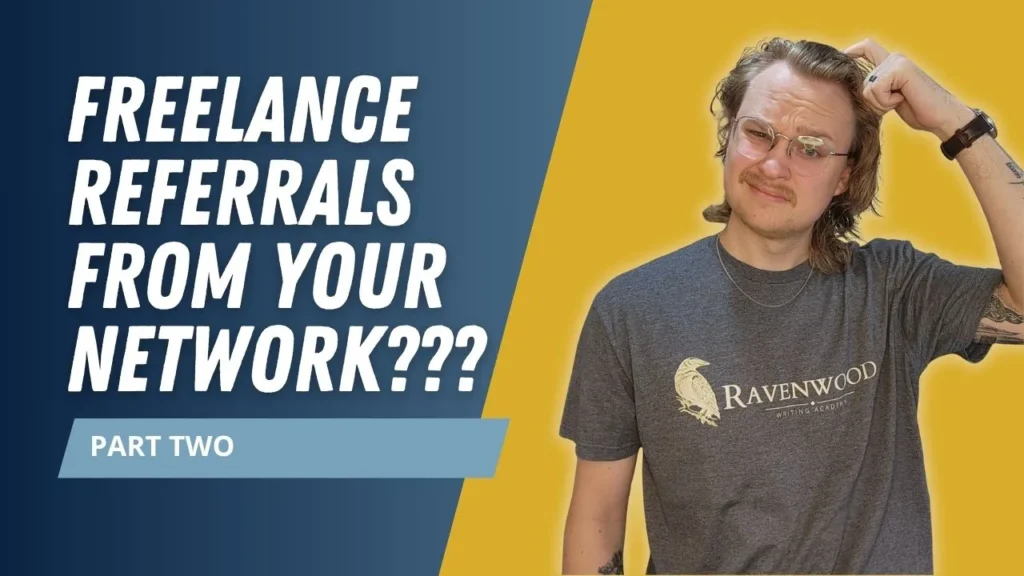Last week I got an email from a freelance writer named Anna. She wanted to share a client acquisition strategy that’s quietly been making her thousands in 2025.
I knew I had to pass it along.
Like a lot of writers, Anna started out hustling on Upwork and sending cold pitches on LinkedIn. But she kept running into the same problems you might be familiar with:
- Race to the bottom bidding
- Ignored cold outreach attempts
- Clients prioritizing “cheap” and “fast” over quality
That’s when she stumbled upon a post from a recruiting agency CEO talking about the challenges of hiring in 2025.
The post was fine, but the writing was generic and full of fluff. Three likes and zero shares confirmed the quality.
Instead of scrolling by, Anna did something bold.
She rewrote the post in the comments, making it sharper and more engaging.
The CEO noticed.
After a brief DM exchange, Anna landed a paid ghostwriting gig creating LinkedIn content for the firm’s leadership team. A month later, they hired her to create a white paper detailing hiring trends and challenges. She also got referred by the CEO to a staffing SaaS brand to help with their content.
Why This Works
Anna didn’t just get lucky. Her comment was a strategic move to position herself as an obvious solution to a problem the CEO didn’t even realize he had.
Most freelancers spend loads of time on cold outreach and content marketing.
But few think about the power of public engagement as a lead-gen tool.
Here’s why Anna’s approach is so effective (even though almost no one is doing it):
✅ You show, don’t tell. Instead of pitching her skills like every other writer, Anna demonstrated her value. The CEO saw her writing improve his content, and didn’t just have to take her word for it.
✅ You catch decision-makers where they’re already active. Busy editors and executives don’t read cold emails. But many do check notifications on their own posts. Engaging in the comments section puts you directly in their line of sight.
✅ You bypass traditional hiring barriers. Most companies don’t even know they need a freelance writer until someone (like Anna) steps in and fixes a problem they didn’t realize was costing them opportunities.
✅ It works across industries. While Anna targeted HR and recruiting, this strategy works anywhere decision-makers are posting publicly. Whether it’s tech, finance, real estate, or SaaS, when people struggle to communicate their expertise clearly, there’s an opportunity.
How You Can Steal This Strategy Today
We’ve all heard about using comments on LinkedIn to your advantage.
But this strategy isn’t about engagement, it’s about intentional, strategic demonstrations of your expertise.
Here’s how you do it:
1. Find Active Decision-Makers on LinkedIn
Search for founders, CEOs, CMOs, editors, and thought leaders in your niche who post original content. Bonus points if their engagement is low compared to their follower count. Before commenting, follow them for a while and study their style.
Pro Tip: A quick way to find them is to search for “[Industry] + [Role title]” on LinkedIn, filter by “Posts,” and see who’s writing.
2. Look for Posts That Need Help
If a post is insightful but poorly written, you have an opportunity. Low engagement means the audience isn’t resonating. If it’s riddled with jargon or fluff, you can improve clarity.
3. Leave a “Value-Add” Comment
Don’t just comment. Deliver value. Take one key point from the original post and improve it in your response. Be respectful but bold. Remember, your goal is to make them look better, not call them out, but don’t shy away from addressing obvious issues.
Pro Tip: Ask a follow-up question to keep the conversation going—it increases the chance they engage with your comment and check out your profile.
4. Slide Into the DMs (the Right Way)
Once they engage with your comment, send a warm DM to continue the conversation. Here’s an example:
“Hey [Name], I loved your post on hiring trends, but noticed the message could be a little clearer. I actually help leaders turn insights into high-engagement LinkedIn content. If you’re looking to amplify your brand, I’d love to chat! No pressure, just wanted to reach out.”
Keep it short, direct, and low-pressure. Your goal isn’t to sell in the first message—it’s to start a conversation.
This Works… But Only If You Do It
A lot of freelancers aren’t willing to take bold steps like Anna did because they’re stuck in old habits. But in 2025, the market has changed. Bidding on job boards and sending cold emails isn’t enough to land clients anymore.
Anna stepped into conversations where her ideal clients were already talking. And that one choice changed her freelance career overnight.
If you’ve been struggling to find better clients, bigger projects, and higher rates, give this approach a try this week.
Let me know what happens. I’d love to feature your story next!





